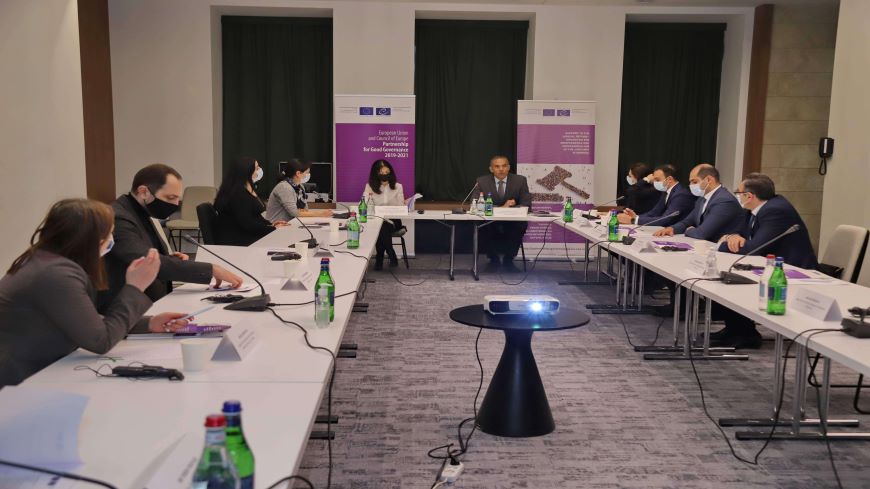On 9 December 2021 the Round Table Discussion on the Review of the Civil Procedural Code of Armenia took place in the framework of the project ''Support to the judicial reform – enhancing the independence and professionalism of the judiciary in Armenia,'' funded by the European Union and the Council of Europe and implemented by the Council of Europe.
One of the Project components is focused on the assessment of legislation related to the justice system of Armenia and the provision of recommendations as to strengthening the independence, impartiality and efficiency of the judiciary in Armenia, in line with the Council of Europe standards.
The ongoing judicial and legal reforms in the Republic of Armenia are aimed, among other things, at improving the civil procedure legislation. By the adoption of the Civil Procedural Code of the Republic of Armenia in 2018, the civil jurisdiction was significantly reformed, and a number of new institutions were introduced, aimed at reducing the high workload of courts and increasing the effectiveness of case examination.
Following the identification by the national consultant of the Council of Europe of shortcomings related to the practical application of the norms defined by the Civil Procedural Code of Armenia, within the framework of the Project a review of the compatibility of the Civil Procedural Code of Armenia with the Council of Europe standards and best practices of the Council of Europe member states was conducted and presented during the discussion by the international consultant of the Council of Europe. The overall assessment of the Civil Procedural Code by the international expert was positive, noting that the Civil Procedural Code is very well structured and up to the Council of Europe standards, though as in the case of most of the legislative acts there is still a room for improvement.
The discussion was attended by the Deputy Head of the Co-operation Programmes Division of the Council of Europe Directorate General of Human Rights and Rule of Law, the representatives of the Ministry of Justice, ''Centre for Legislation Development and Legal Research'' Foundation, Supreme Judicial Council, Court of Cassation, Civil Court of Appeal, First Instance Court of General Jurisdiction of the city of Yerevan and the Council of Europe national consultant.
This event was organised in the framework of the project ''Support to the judicial reform – enhancing the independence and professionalism of the judiciary in Armenia,'' funded by the European Union and the Council of Europe in their Partnership for Good Governance II (2019-2022).





